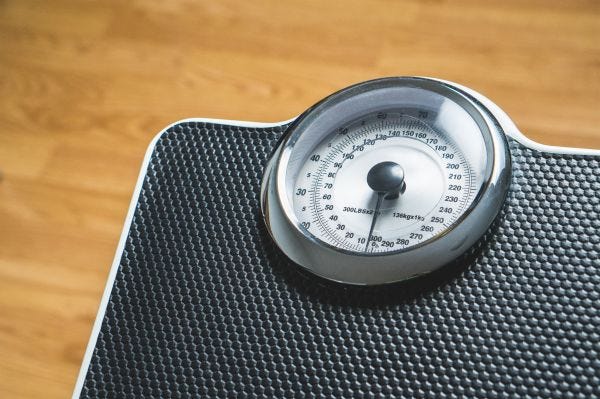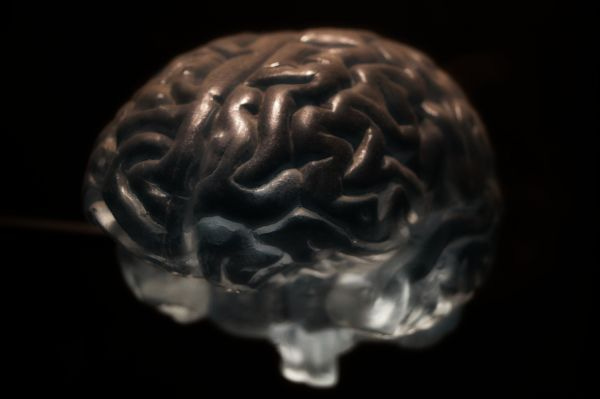Sci-Ed Update 308
Healthy mouth—healthy life, JN.1 strain of SARS-CoV-2, overweight BMI not so bad, daydreaming boosts memory, memory palaces, immune cells in Alzheimer disease, gender bias's surprising reasons, & more
Why tending your oral microbiome is the secret to a long, healthy life
…perhaps we need to recalibrate our relationship with our oral health, because there is a consensus emerging that looking after it might be the underappreciated secret to a longer, healthier life.
What matters isn’t so much having pearly whites per se, but looking after our oral microbiome: the viruses, fungi and 700 or so species of bacterium that reside in our mouths. Let our oral hygiene slip, and bad bacteria from there can travel all over the body, causing or exacerbating problems, from cardiovascular disease and cancer to Alzheimer’s disease and arthritis. Keeping everything in balance, on the other hand, staves off decline.
Read more→ AandP.info/5dg
3 Things to Know About JN.1, the New Coronavirus Strain
As cold winter weather drives people indoors and flu, colds, and other seasonal respiratory viruses circulate, SARS-CoV-2, the coronavirus that causes COVID-19, has continued to mutate and spread. The latest strain to attract attention is called JN.1, and so far, it appears to be highly transmissible.
It can be difficult, if not impossible, to predict the evolution of the coronavirus and its descendants. But the Centers for Disease Control and Prevention (CDC) projects that JN.1 cases will increase through the winter. The World Health Organization (WHO) also declared JN.1 a “variant of interest.”
Read more→ AandP.info/oni
Having an 'overweight' BMI may not lead to an earlier death
Being “overweight” may not be so bad for your health after all. The latest evidence comes from a large study where people who were classed as overweight, but not obese, had a slightly lower rate of death than people with a supposedly ideal weight – hinting that the threshold at which individuals are classed as overweight has been set too low.
It is uncontroversial that being very heavy is bad for people’s health, but it is unclear at what point health risks begin. Doctors usually advise people to lose weight if they have a high body mass index (BMI), which is someone’s weight in kilograms divided by the square of their height in metres.
In most countries, a healthy weight is defined as a BMI between 18.5 and 24.9. Having a BMI between 25 and 29.9 is classed as overweight and 30 and above is obese. These thresholds became the medical orthodoxy after being cited in a report from the World Health Organization in 1997.
Read more→ AandP.info/z3v
Want an Easy Way to Instantly Boost Your Memory and Recall? Neuroscience Says Daydream for a Minute or Two
A study published in Nature Reviews Psychology found that "offline waking rest" -- zoning out, daydreaming, actively not trying to remember -- improves memory, because without intermittent periods of lack of focus, memory consolidation can't occur as efficiently.
Read more→ AandP.info/pkl
Memory Palaces with Chase DiMarco
Host Kevin Patton chats with mnemonist (memory expert) Chase DiMarco, who helps medical students learn. DiMarco describes how to use memory palaces in learning human anatomy and physiology.
00:44 | Introducing Chase DiMarco
02:33 | Sponsored by AAA (Silverthorn toast)
03:53 | What Is a Memory Palace?
11:44 | Sponsored by HAPI
12:07 | Building a Memory Palace
22:53 | Sponsored by HAPS
23:16 | Helping our Students
27:51 | Staying Connected
To listen to this episode, click on the play button above ⏵ (if present) or this link→ theAPprofessor.org/podcast-episode-64.html#full
Brain Autopsies Suggest a New Culprit Behind Alzheimer's Disease
Analysis of human brain tissue reveals differences in how immune cells behave in brains with Alzheimer's disease compared to healthy brains, indicating a potential new treatment target.
University of Washington-led research, published in August, discovered microglia in the brains of people with Alzheimer's disease were in a pre-inflammatory state more frequently, making them less likely to be protective.
Read more→ AandP.info/agz
Intermittent Fasting Seems to Result in Dynamic Changes to The Human Brain
Scientists looking to tackle our ongoing obesity crisis have made an important discovery: Intermittent fasting leads to significant changes both in the gut and the brain, which may open up new options for maintaining a healthy weight.
Researchers from China studied 25 volunteers classed as obese over a period of 62 days, during which they took part in an intermittent energy restriction (IER) program – a regime that involves careful control of calorie intake and fasting on some days.
Not only did the participants in the study lose weight – 7.6 kilograms (16.8 pounds) or 7.8 percent of their body weight on average – there was also evidence of shifts in the activity of obesity-related regions of the brain, and in the make-up of gut bacteria.
"Here we show that an IER diet changes the human brain-gut-microbiome axis," says health researcher Qiang Zeng from the Second Medical Center and National Clinical Research Center for Geriatric Diseases in China.
Read more→ AandP.info/yn8
Citations show gender bias — and the reasons are surprising
An analysis of more than two million papers in the life sciences shows a strong gender bias in citations: papers with female lead authors get fewer citations than do those led by male authors in subsequent male-led papers1. This pattern holds true in many subfields of the life sciences, including those with relatively equitable gender representation.
The study’s authors say that the imbalance is caused in part by gender specialization in certain research areas. But there’s another factor at play — a researcher’s mentors, co-authors and conference buddies are likely to share their gender identity.
The study was published earlier this year in Research Policy.
Read more→ AandP.info/602










